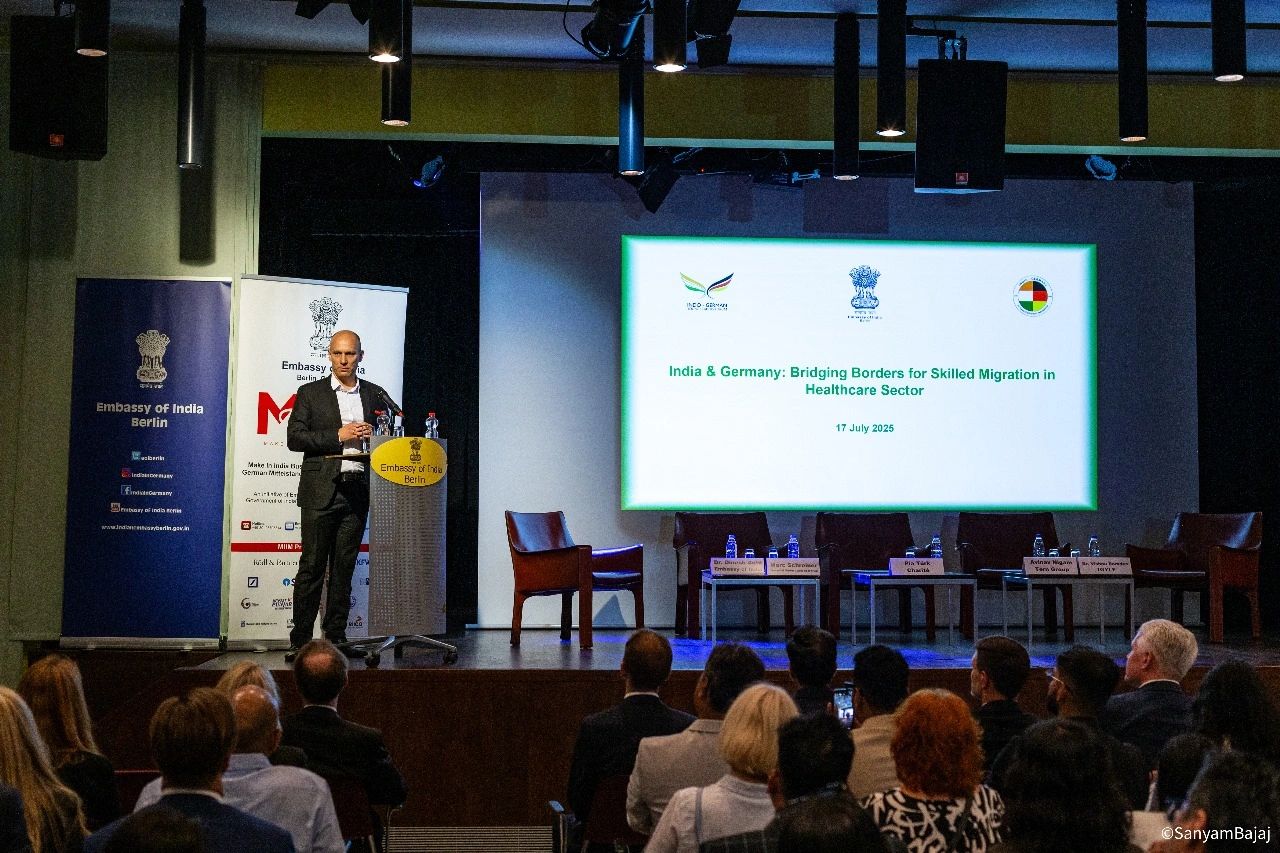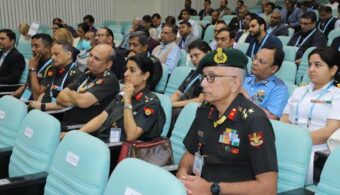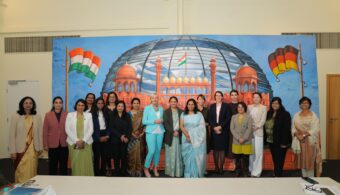Image Credit: Embassy of India, Berlin
The Indo-German Healthcare Congress (IGHC) 2025, held in Berlin from July 17 to 31, brought together top healthcare leaders, policymakers, and innovators from India and Germany to address critical shortages in the healthcare workforce. Backed by the Indo-German Young Leaders Forum (IGYLF), the two-week event spotlighted the need for transparent, ethical, and future-ready healthcare migration frameworks between the two countries.
Embassy Event Draws Overflow Crowd and Senior Officials
The Congress launched with a high-profile event at the Indian Embassy in Berlin, attended by over 150 stakeholders, including representatives from 15 of Germany’s top 20 university hospitals. Delegates also included senior officials from Germany’s Ministries of Labour, Health, and Foreign Affairs, as well as a 25-member Indian delegation of healthcare innovators and policymakers.
Speakers at the inaugural included Thomas Heim from the German Federal Ministry for Labour and Social Affairs, and Henning Haab from the Federal Ministry of Health.
“The turnout, even in pouring rain, showed the urgency on both sides to address healthcare workforce shortages,” said Avinav Nigam, CEO of TERN Group, a recruitment tech firm supporting the event.
Panel Highlights Systemic Barriers and Ethical Recruitment
A panel discussion moderated by Dr. Dinesh Antil, First Secretary at the Embassy, featured Marc Schreiner (Berlin Hospital Association), Pia Turk (Charité Hospital), and TERN CEO Avinav Nigam. Discussions focused on the barriers to healthcare migration—particularly visa delays, credential recognition issues, and unethical recruitment practices.
Marc Schreiner cited red tape as a major challenge, while Pia Turk highlighted Charité’s experience integrating Indian nurses, noting their strong work ethic and the hospital’s growing focus on India as a key recruitment partner.
Nigam emphasized a people-first approach, noting that Indian nurses often start preparing for overseas jobs years in advance. “They’re asked to pause their lives and income for nine months to learn German. That’s neither scalable nor fair,” he said.
Addressing Exploitation in the Talent Pipeline
Nigam also pointed to the prevalence of scams in the recruitment process, where some nurses pay up to €50,000 in the hope of working abroad. “That’s unacceptable,” he said. “We need a digital, government-backed system to reduce the layers between talent and employers.”
TERN, he added, operates on a zero-fee, transparent model to eliminate exploitation and provide lifelong support.
Nurses Join the Dialogue in Berlin
In a rare move, TERN flew in a group of Indian nurses to participate in the Congress, allowing them direct exposure to German healthcare institutions and conversations shaping their professional future. A 10-member TERN team supported the IGYLF organizing committee throughout the event.
Push for Policy Reforms and Digital Systems
The Congress also explored reforms aligned with Germany’s new Digital Skilled Immigration Platform (DSP), including digitizing visa systems, harmonizing curricula, and streamlining recognition processes.
“This is not just about job placement. It’s about systems, dignity, and long-term success for nurses and health systems,” said Nigam.
Looking Ahead: Talent Summit to Conclude Congress
The IGHC 2025 will conclude on July 31 with a dedicated talent summit in Berlin. The summit puts a spotlight the evolving India-Germany partnership on skilled healthcare migration, as both countries work toward building fair, transparent, and future-ready mobility pathways.



